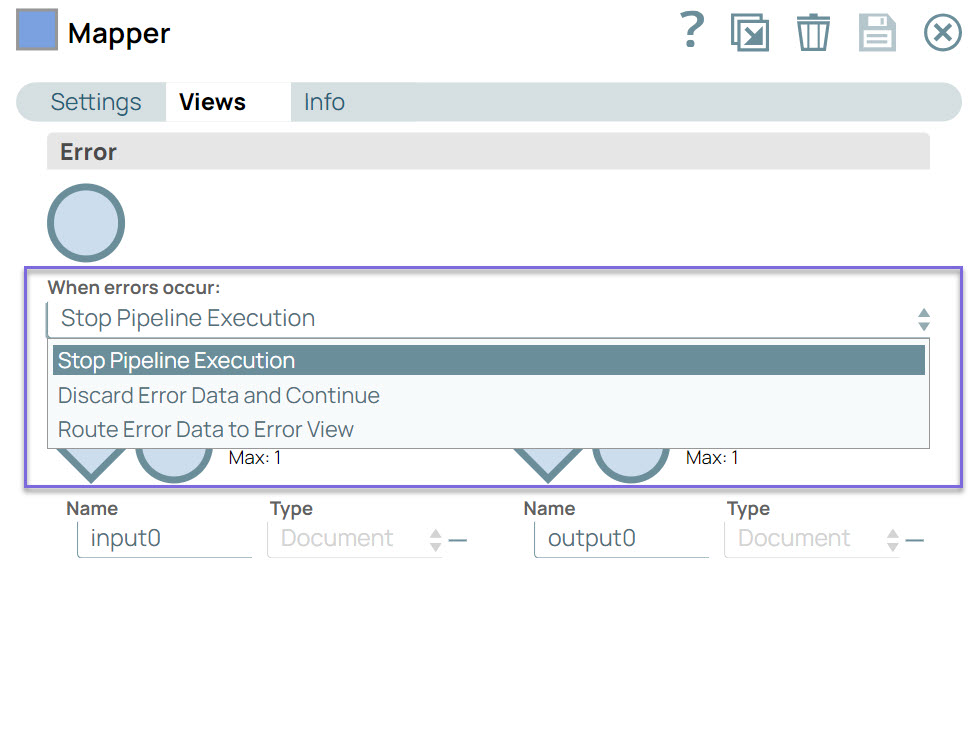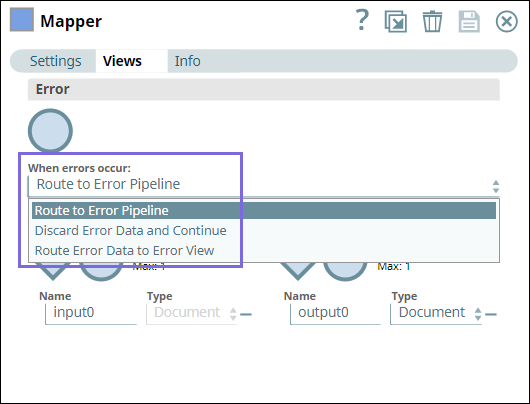...
...
...
On this
...
page
| Table of Contents | ||||
|---|---|---|---|---|
|
Error View
You can configure the error view in your Snaps to handle errors by selecting an option from the When errors occur in the Views tab of the Snap settings.
Stop Pipeline Execution: This option stops the current pipeline execution when an error arises. When the pipeline fails, a window appears that shows the execution statistics for the pipeline. The Mapper Snap is configured with the wrong settings in the following example. This generates an error when we execute the pipeline.
Discard Error Data and Continue: This option discards the record with errors, if any, and continues with the Snap execution. You might encounter partial or no data processing if you select this option.
Route Error Data to Error View: Routes the error data to an error view without stopping the Snap execution. If you manage errors in this manner within the pipeline, the overall status of the pipeline will still show as completed. In the following example, you can see the data is directed to an error view of the Mapper Snap. You can route errors to the error view and decide how to manage them in the pipeline: store them in a file, log them, or take specific actions based on the type of error.
However, it’s not the recommended practice for handling errors across the entire project. As pipelines evolve over time, growing in size, the number of Snaps, and complexity, this method becomes challenging to maintain. It's best to consider alternative strategies for managing errors on a broader scale.
Error Pipeline
An error pipeline is a pipeline that you can create specifically for handling errors—it processes error documents produced by other pipelines in your environment. When an error is encountered during pipeline execution, the error handling mechanism routes the errored documents to an error pipeline, which is a separate pipeline dedicated to handling errors. The main pipeline continues processing valid documents without being interrupted by errors. The error pipeline runs even if errors are not encountered in the Snaps from the main pipeline. After the error pipeline is configured, the options in the Views tab change as follows:
Select the Route to Error Pipeline option to route the errors to an error pipeline. For more information on using error pipelines, see Working with Error Pipelines.
If you remove an error pipeline from the main pipeline without replacing it with another one, the main pipeline reverts to the default error behavior.




